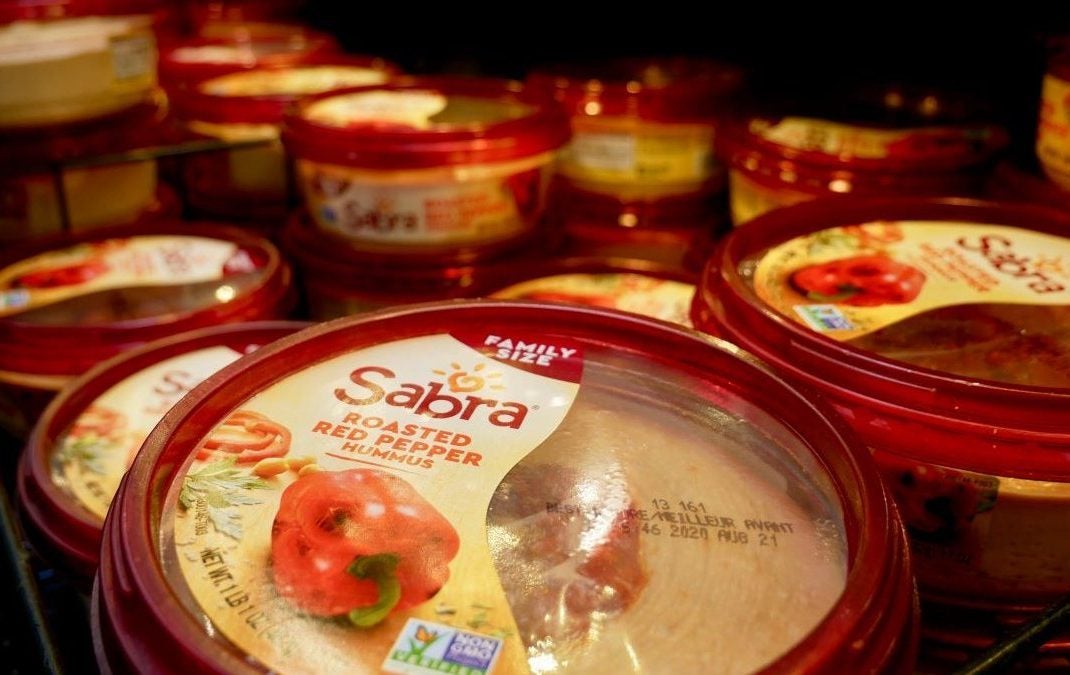
Savoury dips producer Sabra is unlikely to recover the market share it enjoyed in the US, Strauss Group, one of the business’ owners, has said.
Shai Babad, Strauss Group’s CEO, said major US retailers had told the company they wanted to increase the number of suppliers they use for hummus, which is central to Sabra’s product portfolio.

Discover B2B Marketing That Performs
Combine business intelligence and editorial excellence to reach engaged professionals across 36 leading media platforms.
As a consequence, Strauss Group, which jointly owns Sabra with PepsiCo, believes the business will not be able to enjoy the position in the category in the US it once had.
“We have been told by the big retailers such as Costco, WalMart, Target and others that they are not going to put all the eggs in one basket we’re not going to be the only one providing them with hummus,” Babad told analysts yesterday after Strauss published its third-quarter results.
A salmonella recall at a Sabra factory in the US in March 2021 hit the company’s sales well into 2022. In the first nine months of 2022, Sabra’s shares of the US hummus market stood at 31%, compared to 61% a year earlier. In the quarter to the end of June 2023, its share had improved to 38.5%.
Babad added yesterday. “We still believe we can grow, we still believe we can get a higher market share but we don’t think we’re going to get back to the 60%.”

US Tariffs are shifting - will you react or anticipate?
Don’t let policy changes catch you off guard. Stay proactive with real-time data and expert analysis.
By GlobalDataReporting its third-quarter results, Strauss Group said its overall dips and spreads business – which also takes in Obela, which sells into markets outside North America – saw its net sales climb 23.6% to NIS127m ($34.2m). The division posted an operating income of NIS32m, versus a loss of NIS37m a year earlier. Profits were helped by a boost from insurance linked to the 2021 recall.
“[In 2022], we had to write off $7m because of the insurance claim that was posed against us… We have been negotiating with the insurance company for the past couple of months. And at the end of the day, we managed to retrieve [this money].
“The impact from the insurance was NIS48m which brought [us] very high positive results. But when we take out the insurance and the one-time recovery from the insurance, the business is still in a recovery phase.”
In the third quarter, Strauss Group recorded total revenue of almost NIS2.7bn ($725m) up 7.3% year on year and by 3% organically. Net profit hit NIS120m, a 236.7% jump compared to a year earlier.
The company also faced “profitability headwinds” in the third quarter relating to its coffee segment in Brazil.
With an updated strategy due to be finalised by the first quarter of 2024, on the call with analysts, management briefly spoke on its plans to boost capex in the next three years.
Describing Strauss Group’s intention to boost digitisation, Babad said: “There’s a lot of transformation that will be done there, with a lot of investment in changing the way we work.
“We’re also looking at bringing and embedding AI into our system. We started that in marketing [and] call centres, and we are going to [try out] all the different fields in which we work in to see how we embed the new technologies in AI in our business in order to make us future-fit.”
During the call, Babad stressed Strauss Group was witnessing “very complicated and difficult times” as a result of the ongoing Israel-Hamas conflict, with some employees and their families having been killed or kidnapped.
While some of its suppliers’ fields have been destroyed, he described the overall impact on operations as “negligible”.
Strauss Group has three factories around the Gaza Strip: Bror Hayil, which is dedicated to manufacturing washed and packaged vegetables; the salty snacks production plant in Sderot; and Yad Mordechai which specialises in honey, olive oil and other naturally sourced condiments.
All three plants are estimated to now be around 60-80% operational, Babad added.





